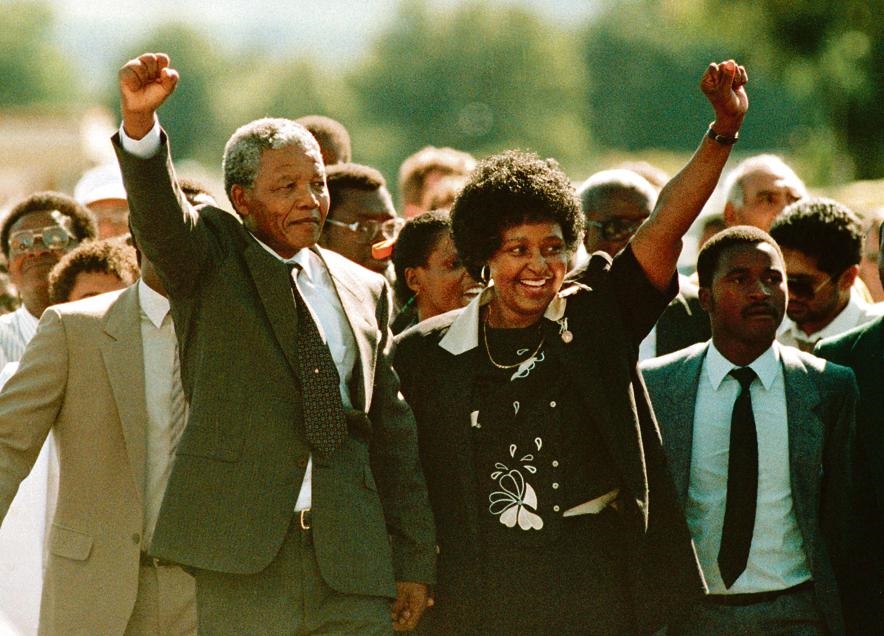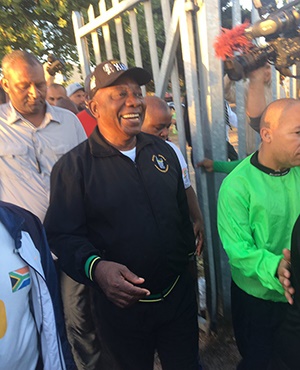By Thandisizwe Mgudlwa
Until all stakeholders of South African football unite and work together for the betterment of the game, football in this country can not reach its full potential.
The time for the South African Football Association (SAFA) and the South African Schools Football Association (SASFA) to put their differences aside and to speak with one voice and follow one vision is NOW.
So much time has been wasted on fighting for control of School Football; to the detriment of School Football, the youth and the nation.
The story goes, in 2015, the South African Schools Football Association (SASFA) general members from the 9 Provinces held a special general congress (SGC) in Johannesburg.
The aim of the SGC was to consider the South African Football Association (SAFA) resolution to take over the running of schools football.
On July 18, 2015; the Congress reiterated the Executive position to categorically reject the decision of SAFA to take over schools football.
According to SASFA, "This decision is not only ill informed, it is unconstitutional and unwarranted."
"SASFA has explored all avenues in an attempt to engage SAFA without any success. SASFA is disheartened by SAFA’s actions to set up parallel schools football structures in the Provinces, the organization views this unfortunate action by SAFA as disruptive, destructive and irresponsible. Such actions are detrimental to the very essence of education and the well-being of vulnerable pupils, especially in their formative years.
Therefore the leadership of SAFA is urged to desist from these disruptive actions and constructively engage SASFA in a manner that befits a national federation, in the interest of football development, which is currently at its lowest ebb."
SASFA continued, "SASFA recognizes and respects the fact the SAFA is the custodian of football in the country whilst SASFA is an integral part of the football development continuum and has been since the dawn of democracy.
SASFA contribution in football development and the impact it has cannot be ignored and trivialized. SASFA cannot whimsically be wished away at a stroke of a pen. Therefore, SASFA cordially calls upon SAFA President, Dr. Danny Jordaan to call his troops back to the negotiating table in the interest of football development."
On another important point, is that the SASFA noted that the General Council appreciated the guidance and words of encouragement the association received from National Association of Schools Governing Bodies as articulated by the General Secretary Matakanye Matakanye, during the SASFA Special General Council meeting.
"SASFA is further humbled by the overwhelming support from SADTU and Sponsors in attendance today."
Mamahase Mohale of the South African Democratic Teachers' Union (SADTU) had said, “We don’t want to see confusion in our schools. SASFA has been doing a good job and they should be left alone. They are the only organization discharged with the responsibility of administering and managing school football in the country”.
It is understood that SASFA like all other nine (9) Associate Members of South African Football Association (SAFA) is an independent juristic body with its own constitution.
"It is a voluntary organization of current and former educators who came together because of their passion to advance football development at schools level. SASFA is responsible for the administration and organization of football played in schools whilst the mother body (SAFA) is responsible for out- of- school Football."
It is the only school’s football structure recognized by both the Departments of Basic Education and Sport and Recreation South Africa. Therefore, all SASFA’s programs are conducted and managed in collaboration with SAFA and the two Departments from Local, Regional, Provincial and National levels, added SASFA.
Conversely , "up until the formation of SASFA, then known as USSASA Football, schools’ Football was not affiliated to SAFA, furthermore, following the formation of SASFA, its members voluntarily applied for Associate membership of SAFA for the purposes of aligning football development programs in the country.
Since then, SASFA has been regularly reporting and accounting to SAFA in respect of its development program."
Essentially noted SASFA at the 2015 Congress, "For the past 21 years, without exception, the Presidents of SAFA including the current president presided over SASFA’s AGM wherein the Executive accounts to general membership. For all these years SAFA received Audited Annual and activity reports. SAFA has never at any point expressed their discontentment with the manner in which SASFA is managed and administered."
Traditionally, Dr. Danny Jordaan addressed SASFA General Council meeting held on the 19th July 2014 at OR Tambo Airport`s Garden Court hotel in Johannesburg.
In his address, it was reported that Dr. Jordaan had expressed the need for SAFA to support SASFA as schools` structures at all levels and not only at National level.
He had also apologized for the omission of SASFA’ team during the SAFA U/17 Inter Provincials tournament and he promised to regularize this anomaly for SASFA to participate in the 2015 tournament.
According to SASFA, Dr. Jordaan had acknowledged that SASFA plays an integral part of the development of football in South Africa.
"SASFA is the face of grass root football in the country therefore, SASFA members should always work collaboratively with SAFA members for the attainment of football objectives."
"Dr. Jordaan promised to invite two representatives of SASFA to attend the World Cup in Russian," says SASFA.
SASFA is an associate member of SAFA that has always complied with all constitutional imperatives of the mother body. "We have always been a loyal member of the Association and the biggest with visible programs. And SASFA has always been a member in good standing."
Dennis Mumble, CEO of SAFA, attended SASFA’s Strategic Planning Workshop held in October 2014, and as such, was reported to be very happy with the direction SASFA was taking in aligning their programs to SAFA’s Vision 2022.
He applauded SASFA’s initiatives to including private schools and former Model C schools participate in Schools Football, says SAFSA
What has suddenly changed that forced SAFA to take such a radical decision without thorough consultation? asked SASFA.
"At the Extra Ordinary Congress of SAFA on the 28th March, SAFA claimed that the Minister of Sport and Recreation instructed them on the 19th December 2014 to take over control of schools football. This is something the Minister’s office has categorically refuted. SASFA was informed about the Ministers directive at an impromptu meeting 30 minutes before start of the Congress meeting."
In addition, "Prior to this impromptu meeting on the day of the Congress, SASFA had never been consulted nor informed of the Ministers directive. SASFA immediately raised an objection about the timing of the information from the Minister. Upon raising this objection, the Convener of the impromptu meeting promised that in the event the matter is raised in the Congress, he would propose to the Congress to defer it to the meeting between SASFA and SAFA, which was scheduled to take place within 21 days following the congress.
SASFA was completely surprised when this issue was raised and a decision taken without the Conveners intervention, as he had promised."
Furthermore, SASFA was dumbfounded by the unconstitutional Congress decision to take over the administration of schools football.
When first and foremost, schools football was never on the agenda of the Extra Ordinary Congress as required by the SAFA Constitution, moreover, that the Congress’ decision to take over schools’ football was instigated based on disinformation."
Earlier in 2018, SAFA said Mandla Shoes Mazibuko purports to head the deregistered SASFA which is no longer recognized by Association as representative of schools football.
Speaking last October during the Copa Coca-Cola tournament in Bloemfontein, Sasfa president Mandla “Shoes” Mazibuko said the organisation was open and ready to work with Safa.
“There is no reason we can’t work with Safa. Whose interests are we serving if we are not working with Safa?” he asked.
“This is more about politics than what meets the eye, but, as far as we are concerned, we are working with everybody you see around here [at the tournament], including the departments of education and sports, stakeholders and the teachers’ union. There is no reason we should not work with Safa".
Mazibuko said Sasfa had not disputed that Safa was the custodian of football in the country.
“It is them [Safa] who disputes that we have a mandate to run schools football. Fortunately, that mandate can not be challenged.
“From the onset, we didn’t have an issue. Remember, it was Safa that – out of the blue – decided to derecognise us without any apparent reason".
Mazibuko further challenged Safa to help SASFA rather than mislead the public about the details regarding schools that were participating in development programmes.
Mazibuko added “People are talking and trying to mislead the country around the number of schools participating or that should participate. The truth is that we have 25 000 schools in the country. However, out of that number, there are not more than 6 000 high schools [that participate in the development programmes], and not all of them play soccer as there are those that play other sport such as rugby, cricket and hockey,” he said.
“You know, we don’t have girls’ leagues in the country or girls’ programmes in the schools, so you don’t use that as a ploy to say that Sasfa is not touching enough schools. What are you doing as a mother body to assist your associate member?” he asked, referring the question to Safa.
The SASFA-SAFA squabble over the controlling of School Football is before the courts.
And among others, a COSAFA-CAF-FIFA intervention is long overdue.






